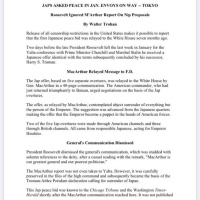
塩、砂糖、脂肪の神聖な三位一体には抗えない。
絶食で欲望を根本から順序づけるしかない。一日二食がちょうどいい。
一日三食は
トーマス・エジソンが、自身の発明したトースターを売るために「朝ごはんを食べて1日元気!」と考えたマーケティングだったとか聞く。
砂糖、チーズ、ファーストフードがヘロインよりも中毒性が高い理由
ヘイリー・エバー
クッキーはヘロインよりもさらに中毒性が高いかもしれないことが、新書で明らかになった。
長年の研究により、甘味の持つ衝撃的な力が明らかにされてきた。1980年に行われたある実験では、被験者に、舌の上に砂糖が乗ったと感じたらすぐにボタンを押すように求めた。彼らの反応はほぼ瞬間的であった - 砂糖が彼らの舌の上に着陸した後、彼らはそれを感じた数秒後に。
"タバコの煙は脳をかき混ぜるために10秒かかりますが、舌の上に砂糖のタッチは、少し半秒以上でそうなります "ピューリッツァー賞を受賞したジャーナリストのマイケル-モスは、彼の新しい本で書いています "フッキングされています。食品、自由意志、そしてどのように食品の巨人は私たちの中毒を搾取する"(ランダムハウス)、アウト火曜日。"それはタバコよりもほぼ20倍速いです。
"食品はタバコ、アルコール、麻薬と同じくらい中毒性があるだけではない "と彼は言った。"しかし、ある意味ではさらにそうです"
そして食品メーカーは、私たちの基本的な本能と生物学を利用して、私たちを自社製品に夢中にさせている、とモス氏はポスト紙に語った。
タバコやドラッグ、ハードな酒がニコチンやモルヒネ、エタノールなどの特定の化学物質に頼って脳に影響を与えて私たちを夢中にさせるのに対し、加工食品はもっと単純な物質を使って私たちを切望させる:塩、砂糖、脂肪の神聖な三位一体だ。これらのおいしい誘惑は、私たちの脳が快楽ホルモンであるドーパミンを放出する手掛かりとなり、また食べたくなるように誘うのです。
"私たちがチョコレートケーキを見たり、嗅いだり、単に考えたりすると、それは私たちが一切れ食べたくなるドーパミンです - ケーキの中の砂糖とバターと同じくらい、"モスは書いています。"これは私たちの生存のためのツールです。生きるためには食べる必要があり、ドーパミンは食べる気にさせるために存在している」とモスは書いている。
タバコ会社やファストフードチェーンは、私たちを中毒に陥れるために私たちの生物学を利用しています。
タバコ会社や食品メーカーは、私たちがまた食べたくなるようにさせるために同じ手口を使っています。
ゲッティ イメージズ
製造業者はまた、脂肪、砂糖、塩分を好む私たちを操作するためにステルスの方法を使用しています。マルトデキストリンは、ほとんど検出されないデンプンの誘導体で、例えば、サラダのドレッシングを濃くしたり、ビールの味を濃くしたりするために使用されています。この物質はほとんどの人には甘い味がしないが、化学構造は同じで、カロリー数も同じで、砂糖と同じように私たちを過食させる可能性がある。
"このことが、食品メーカーにとって非常に有用であることを示している "とモスは書いている。
加工食品は舌に当たると脳に信号を送り、消化されると、薬物やアルコールと同じように血流に入る。
"ブドウ糖は何かを食べてから10分以内に血中に到着し始めることができ、これはコカインをスナートしたのと同じくらいの速さです。"高度に精製された製品は、血糖値を最も速く急上昇させ、それが急上昇すればするほど、脳内の報酬系に早く到達する。"
さらに、新しい研究では、より速く食品が私たちの血流にヒットし、私たちの血糖値を上げるほど、より多くの私たちの血糖値は、その後クラッシュすることを示唆している。そのドロップは、モスは書いている、 "より多くの食べ物を探すために私たちを呼び出すより多くのドーパミンを作ることに脳を駆り立てる"
加工食品がはるかに簡単で、タバコや薬よりもスコアに安価であるという事実も私たちはそれらのために欲情になります、高さはそれほど強烈ではない場合でも。
"ホットポケットは安いし、合法だし、どこでも手に入る」とモスは言う。
加工食品の中毒性を考えると、タバコの巨人フィリップ・モリスが1988年にクラフト社を買収し、約20年間、何らかの形で食品コングロマリットの親会社を務めたのは当然のことだ。
"フィリップ・モリスは、クラフト社のマーケティング戦略のいくつかを教えてくれました。フィリップモリスはタバコのマーケティングで天才だったし、それはその天才の一部をその食品管理者にシフトし、彼らがそれらの強迫的なものに向かって私たちを駆動する私たちが空腹ではないときに食べるために私たちを引き起こすそれらの感情的なボタンをヒットさせる方法を見つけるのを支援し、"モスは述べています。
タバコと加工食品は、「彼らは私たちの感情や本能、脆弱性を追いかけている」という点で似ています。
モスは、フィリップ・モリス社の顧問弁護士を長年務めたスティーブ・パリッシュに会ったことを思い出した。パリッシュは喫煙習慣を制御することができましたが、彼は非常に中毒性があるため、同社が製造した加工食品に触れることを拒否しました。
"彼は会議中にタバコを一本取り出して、その日の残りの時間はパックを片付けて、二度とタバコを吸わないことができました "とモスは言った。
"しかし、彼はオレオの袋を丸ごと食べるのが怖くて開けられないと言った"
Why sugar, cheese and fast food are more addictive than heroin
By Hailey Eber
Cookies could be even more addictive than heroin, a new book reveals.
Studies over the years have revealed the shocking power of sweetness. In one 1980 experiment, human subjects were asked to push a button as soon as they sensed a hit of sugar placed upon their tongues. Their reactions were almost instantaneous — a fraction of a second after the sugar landed on their tongues, they sensed it.
“The smoke from cigarettes takes ten seconds to stir the brain, but a touch of sugar on the tongue will do so in a little more than half a second,” Pulitzer Prize-winning journalist Michael Moss writes in his new book “Hooked: Food, Free Will, and How the Food Giants Exploit Our Addictions” (Random House), out Tuesday. “That’s nearly twenty times faster than cigarettes.
“Not only can food be as addictive as cigarettes, alcohol, and some drugs,” he said. “But in some way even more so.”
And food manufacturers take advantage of our base instincts and biology to get us hooked on their products, Moss told The Post.
While cigarettes, drugs and hard booze rely on specific chemicals such as nicotine, morphine and ethanol to affect the brain and get us hooked, processed foods use simpler substances to make us crave them: the unholy trinity of salt, sugar, and fat. These tasty temptations cue our brain to release the pleasure hormone dopamine, enticing us to come back for more.
“When we see, smell, or merely think about chocolate cake, it’s the dopamine that makes us want a slice — as much as the sugar and butter in the cake,” Moss writes. “This is a tool for our survival. We need to eat in order to live, and dopamine is there to motivate us to eat.”
Cigarette companies and fast food chains use our biology to hook us into addiction.
Cigarette companies and food manufacturers use the same tricks to keep us coming back for more.
Getty Images
Manufacturers also use stealth methods to manipulate our love of fat, sugar, and salt. Maltodextrin, a nearly undetectable starch derivative, is used to thicken salad dressing or make beers taste richer, for example. This substance doesn’t taste sweet to most people, but it has the same chemical structure, the same number of calories, and the same potential to make us overeat as sugar.
“This,” Moss writes, “makes it highly useful to food manufacturers.”
Processed foods send signals to the brain when they hit our tongues — and as they’re digested, they also get into our bloodstream, just like drugs and alcohol.
“Glucose can start arriving in the blood within ten minutes of eating something, which is as fast as snorted cocaine,” Moss writes. “Products that are highly refined will send our blood sugar soaring the fastest, and the faster it soars, the faster it hits the reward system in the brain.”
Furthermore, new research suggests that the faster a food hits our bloodstream and raises our blood sugar, the more our blood sugar crashes afterwards. That drop, Moss writes, “prods the brain into making more dopamine that calls upon us to look for more food.”
The fact that processed foods are far easier and less expensive to score than cigarettes or drugs also makes us lust for them, even if the high is less intense.
“Hot Pockets are cheap, they’re legal, you can get them everywhere,” Moss said.
Given the addictive nature of processed foods, it’s unsurprising that cigarette giant Philip Morris purchased Kraft in 1988 and served as the food conglomerate’s parent company in some form for nearly two decades.
“They schooled the Kraft people on some of their marketing strategies. Philip Morris was genius at marketing cigarettes and it shifted some of that genius to its food managers, helping them find ways to hit those emotional buttons that cause us to eat when we’re not hungry, that drive us toward those compulsive things,” Moss said.
Cigarettes and processed foods are similar in the “way they go after our emotions and our instincts and our vulnerabilities.”
Moss recalled meeting Steve Parrish, who served as the general counsel for Philip Morris for years. While Parrish was able to control his smoking habit, he refused to touch the processed foods made by the company, because they were so addictive.
“He could take a cigarette out during a meeting and then put his pack away for the rest of the day, and never smoke again,” Moss said.
“But he told me he couldn’t open a bag of Oreos for fear of eating the whole bag.”

























